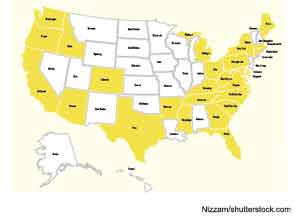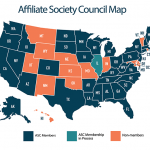
“All politics are local” is a common phrase used by former U.S. Speaker of the House Tip O’Neill. The same can be said for healthcare issues, and as the Affordable Care Act continues to be implemented, more issues will affect physicians at the state level. The ACR created the Affiliate Society Council (ASC) to work with state and local societies on regional issues. Representatives from 18 states met in early February to discuss issues that are affecting rheumatology practices and state societies.
An important issue that affects all rheumatologists is increased Medicaid payments for primary care and related subspecialists. Physicians must make an attestation that they meet the qualifications in order to receive increased payments. Qualifying physicians are defined as physicians with a specialty designation of family medicine, general internal medicine, or pediatric medicine or specialists recognized by the American Board of Medical Specialties. Additionally, physicians must attest that 60% of their Medicaid claims for the prior year were for the evaluation and management codes specified in the regulation. The representatives were encouraged to share this information with members of their state societies.
The ASC also discussed other state legislation that is affecting rheumatologists. There are several states that have passed a standard prior authorization process. Other states were interested in the legislation and how it passed. The Florida Society of Rheumatology (FSR) has been successful in hiring a lobbyist and creating a state political action committee. The FSR is actively advocating at the state level. Other state societies were interested in learning how the FSR reached this level of involvement. The New York State Rheumatology Society representative reminded everyone of the tier 4 insurance policy legislation that was passed in New York a couple of years ago. The ACR is now trying to pass similar legislation at the federal level, but state societies are encouraged to support or bring similar legislation forward, too.
Insurance issues are always discussed at the meeting; they are like a bothersome mosquito that continues to buzz around your ear and frequently draws blood. The state society representatives are discovering that, by establishing state insurance committees, members can work together with insurance carriers to combat burdensome policies. The South Carolina Rheumatism Society was one of the first societies to create an insurance committee. They now have several examples where they have gone toe to toe with insurance companies and have come out victorious. The ACR Insurance Subcommittee also is happy to help with these issues, and has sent letters to insurers on several occasions.

